The 7 bed sheet mistakes ruining your sleep – bedding experts reveal what you should do instead for restorative slumber
These errors will interfere with the quality and duration of your sleep
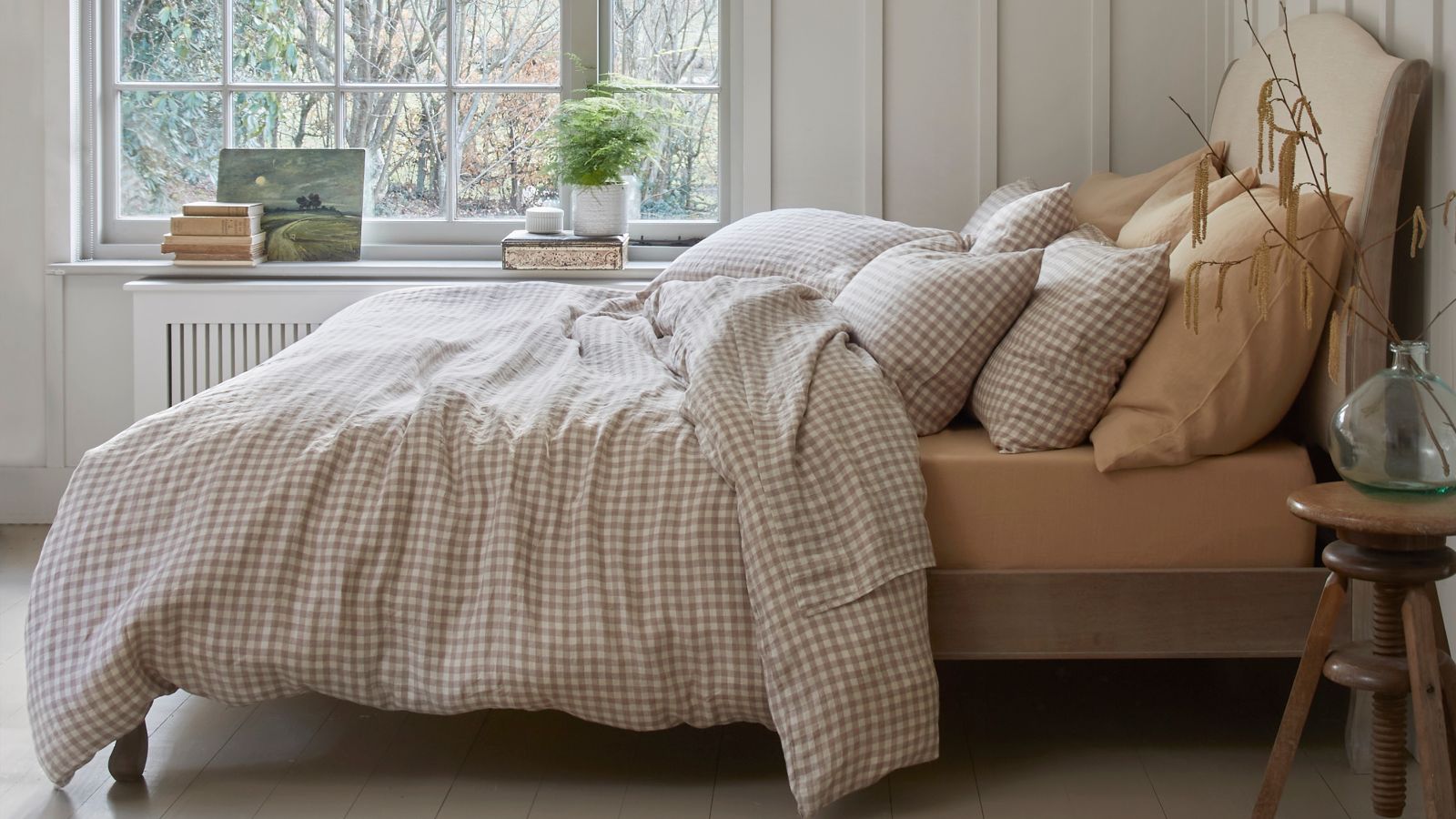

Louise Oliphant
Buying bedding isn't as simple as it seems. There are thread counts, colors, and what feels like endless bedding materials to choose from.
What's more, if you make a mistake, it can impact your quality of life by zapping your sleep. Research has shown that poor-quality bedding can ruin your sleep, leaving you groggy, and far from ready to face the day. So, how do you dodge bedding blunders, including misunderstanding the best thread count?
We have spoken to sleep and bedding experts who have shared the top seven bed sheet mistakes to avoid, so you can pick and maintain the best bed sheets the first time, every time.
Bed sheet mistakes
1. Thinking higher thread count is better
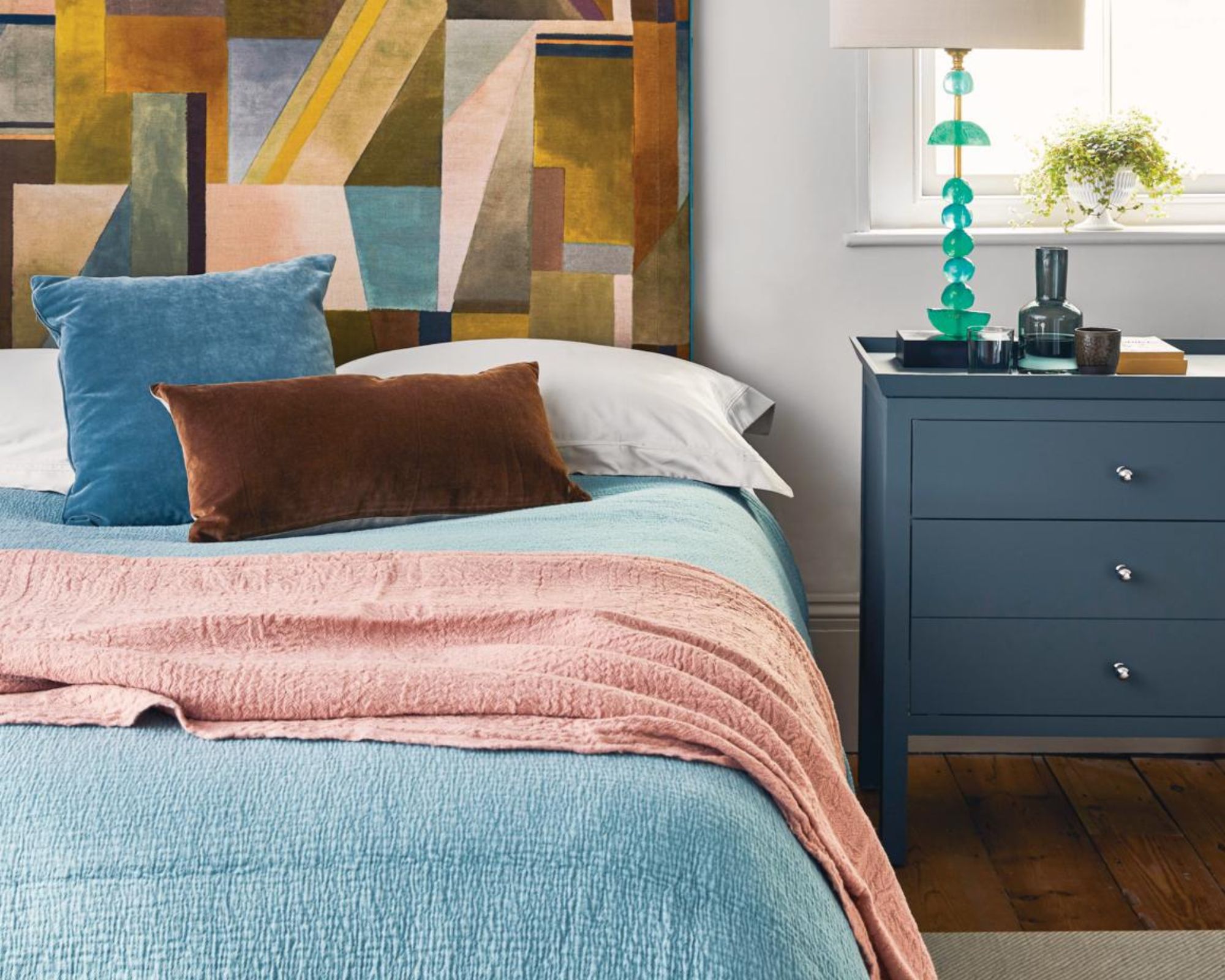
The biggest mistake shoppers make when choosing bed sheets is the thread count. There is a common myth that the higher the thread count, the better the quality. This isn't necessarily true. Rather, the thread count refers to the amount of yarn per square inch of fabric.
As Yusuf Ozkanli, the founder of luxury bedding brand Beddable explains, 'Essentially, a higher thread count means more yarns present in your bed sheets, and since a limited number of threads can fit into each fabric square inch, quality will depend on how thick the yarns are.'
He advises that 'the best thread count for bed sheets is 200-400 because sheets within this range are soft and durable.' The Piglet In Bed Cotton Bundle comes with a 200 thread count and a range of colors and sizes for a luxurious rest no matter your bedroom ideas or aesthetic.
2. Not considering your sleep needs

Achieving the best temperature for sleep is essential to sleeping better. While your room's ambient temperature will impact this, your bedding plays the biggest role in regulating your body temperature throughout the night. Whilst the set you have your eye on may look nice, overlooking your sleep needs could be a bed sheet mistake.
Dr. Leah Kaylor, sleep specialist and psychologist says, 'One of the biggest mistakes people make when looking for bedding is not shopping for materials that will suit their unique temperature needs.
'If your bedding is too warm, it can make it harder to fall or stay asleep, leading to restlessness, lighter sleep stages, and frequent awakenings. Excessive heat also causes discomfort and may disrupt the body’s ability to stay in deeper, restorative stages of sleep like deep and REM sleep.'
Dr. Kaylor recommends the following bed sheet types and bedding materials to avoid for each sleep preference:
- Cotton percale sheets are crisp, cool, and breathable, making them ideal for hot sleepers or warm climates.
- Egyptian cotton is considered the gold standard for luxury sheets due to its softness, breathability, and durability. They work well in both hot and cool climates but can be expensive and often requires special care and cleaning.
- Linen is a nice choice for those who live in warm climates, as it is lightweight, breathable, and has moisture-wicking properties.
- Bamboo is a great breathable fabric for hot sleepers, as they are naturally cooling, antimicrobial, and moisture-wicking.
- Eucalyptus sheets are incredibly soft and breathable for hot sleepers.
- Wool sheets are great for temperature regulation. People often don't realize it but they are naturally warm in winter and cool in summer! They are hypoallergenic, moisture-wicking, and durable. However, many people are turned off by wool due to its heaviness, high cost, and possible coarseness. Importantly, wool sheets also require specialized cleaning.
- Microfiber are not breathable and prone to trapping heat.
- Flannel sheets can trap heat which can be ideal for cold climates.
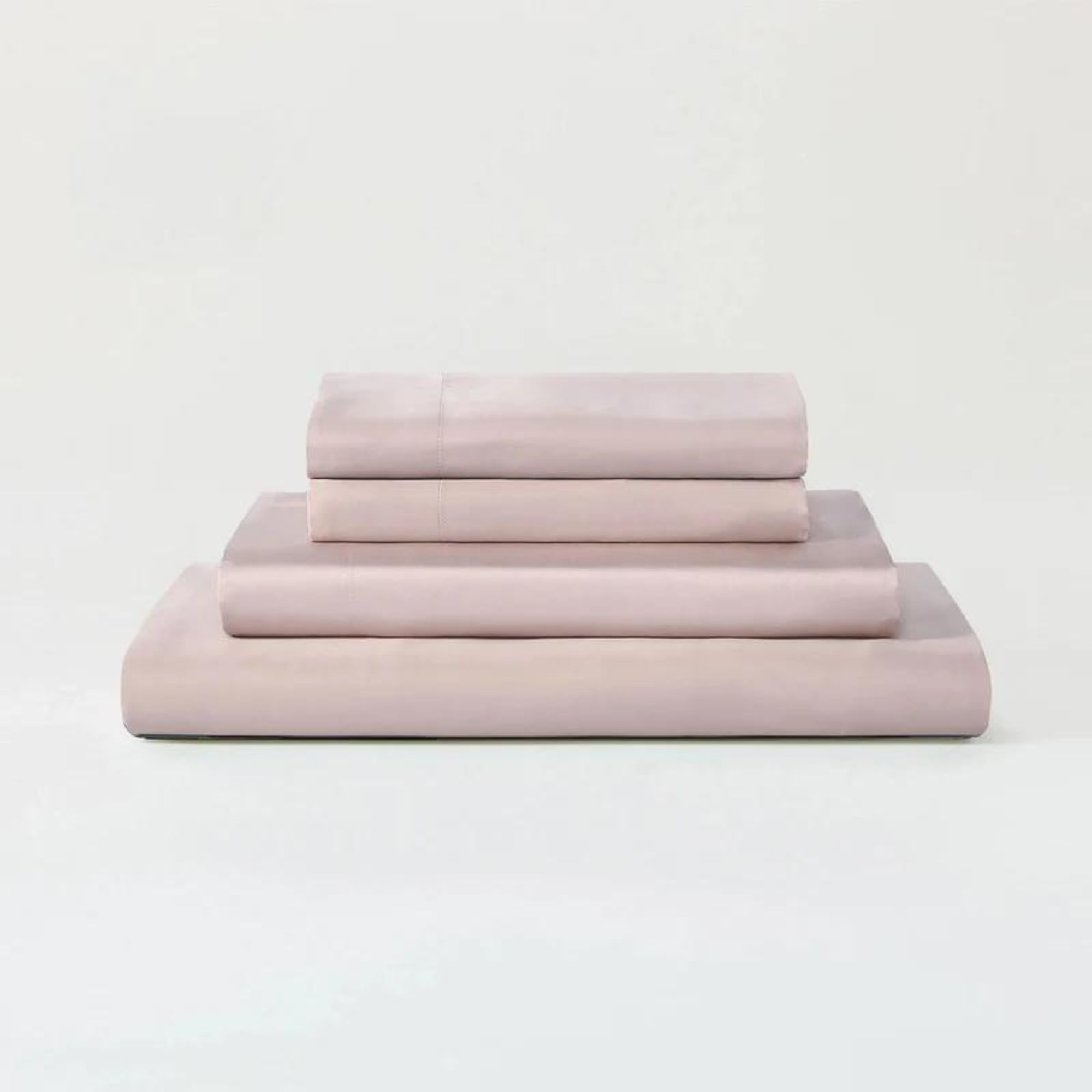
If you're a hot sleeper, eucalyptus bed sheets can help. They have natural properties that actively work to release and dissipate heat as you need it. Moisture-wicking, naturally antimicrobial, and breathable, they'll transform sleep for those prone to overheating.

Bamboo bed sheets are super soft, but don't trap heat as you sleep causing you to sweat. It's naturally moisture-wicking helping hot sleepers keep cool all night long. The luxurious set from Cozy Earth is by far my favorite for summer.

These organic cotton bed sheets from Brooklinen are not only kind to the earth, but also kind to you. Made with 100% natural materials free from any chemicals they're totally hypoallergenic for those who suffer with allergies or sensitive skin.
3. Not shopping for your skin type

If you have skin concerns or conditions, picking the wrong bedding can exacerbate them, leading to poor sleep. If this sounds like you, and you are wondering if you need hypoallergenic bed sheets, the answer is likely yes.
Jonathan Warren, bed expert and director of Time4Sleep says, 'It’s important to make sure you spend time considering whether your choice of bedding is right for your skin. If you’re prone to sweating at night, a cotton material may work better for you. This is because cotton is a very breathable material and allows your skin to have freedom when sleeping.
'Other options, like silk and satin, are gentler and naturally have less friction and contact with the skin, as well as being hypoallergenic. This will also make it less likely that any skincare products you’ve applied, such as night cream or oil, are less likely to get removed by your pillow material.'

Made with 100% Mulberry silk, Gingerlily's signature sheet collection is naturally hypoallergenic, supporting both healthy skin and hair.
4. Forgetting about the season

Chris Ailey, sleep expert and founder of Laud Sleep says, 'Bedding isn't a one size fits all purchase, and bedding options that work well in winter might feel stifling and uncomfortable in the summertime.'
For instance, the steps you take to keep warm in bed in winter will backfire on you when sleeping in the heat of summer.
Chris continues, 'Overlooking any seasonal adjustments in our bedding can lead to restless nights due to discomfort from being too hot or too cold, so consider switching out your bedding when the seasons change.
'In the warmer months, lightweight materials like percale cotton or bamboo are great for keeping cool, whereas in the winter, flannel sheets or a duvet with a higher tog rating can provide the warmth many of us yearn for.'
You should also consider the season when choosing the color of your bed sheets. Whether you choose light or dark bed sheets will make you feel hotter, or colder as you sleep. Light bed sheets in shades such as white or pale blue are the freshest choice and will feel cool to the touch. Dark bedding, on the other hand, will feel hotter, especially if warmed by the sun.
5. Ignoring certifications and bedding standards
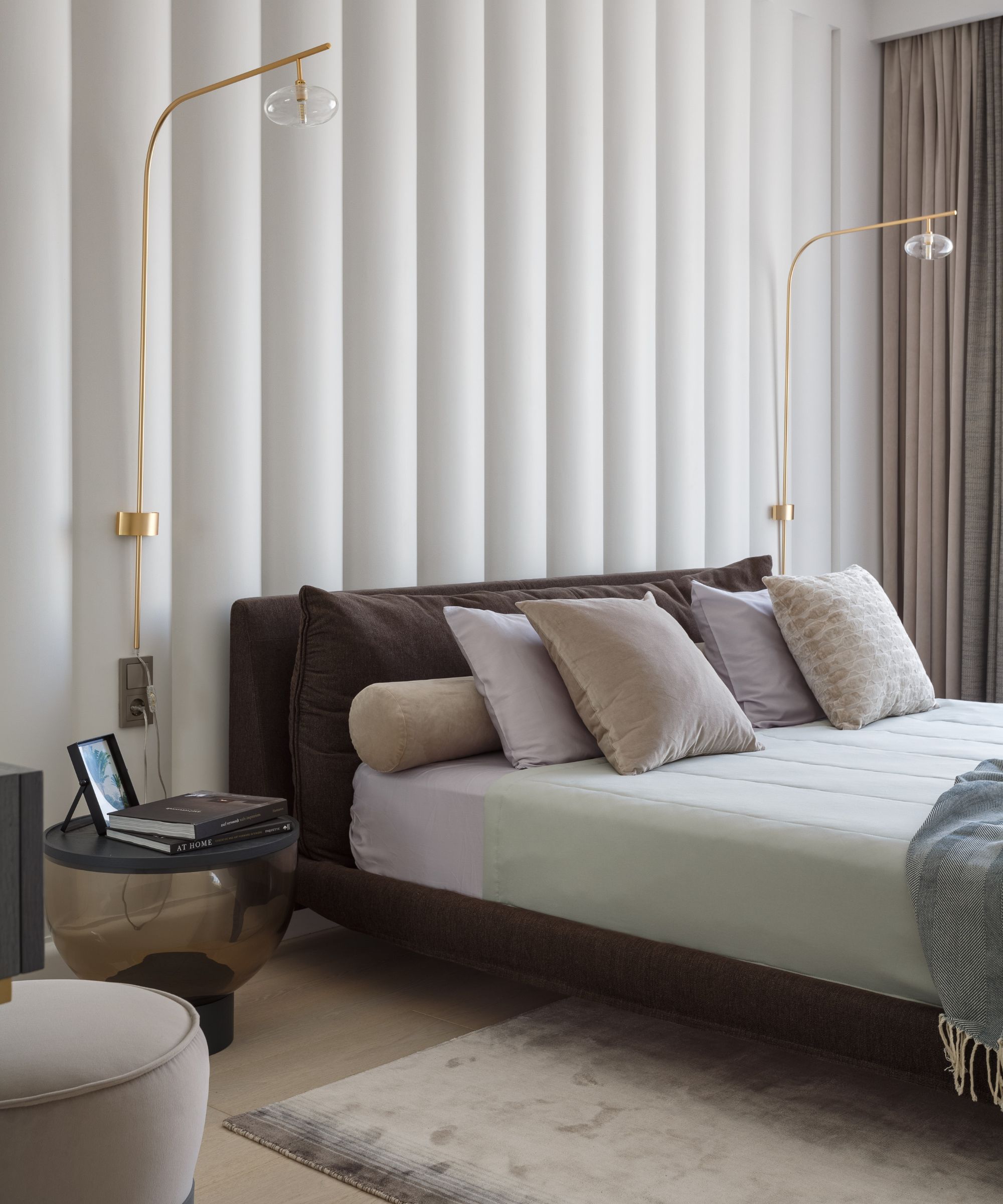
Lots of bedding brands may market their bed sheets as 'luxury', but the key to quality bedding is whether it has any certifications.
Don't be fooled into thinking bedding is the best because it's made of Egyptian cotton, for example. It's not always a guarantee of quality, and there are other places that also produce great sheets.
Yusuf Ozkanli, bedding designer, says you should look for 'cotton that comes from Portugal, for example. Portugal is one of the best manufacturers of cotton, where local families run generational mills that meet high production standards.'
When buying bedding, ensure it has an Oeko-Tex certification, such as Brooklinen's Luxe Sateen Hardcore Sheet Bundle. This ensures the fabrics are made without any harmful chemicals, like dyes and bleaches. Generally, polyester bedding won't hold these certifications – hence polyester is considered the worst bed sheet material to choose.
6. Choosing the wrong size
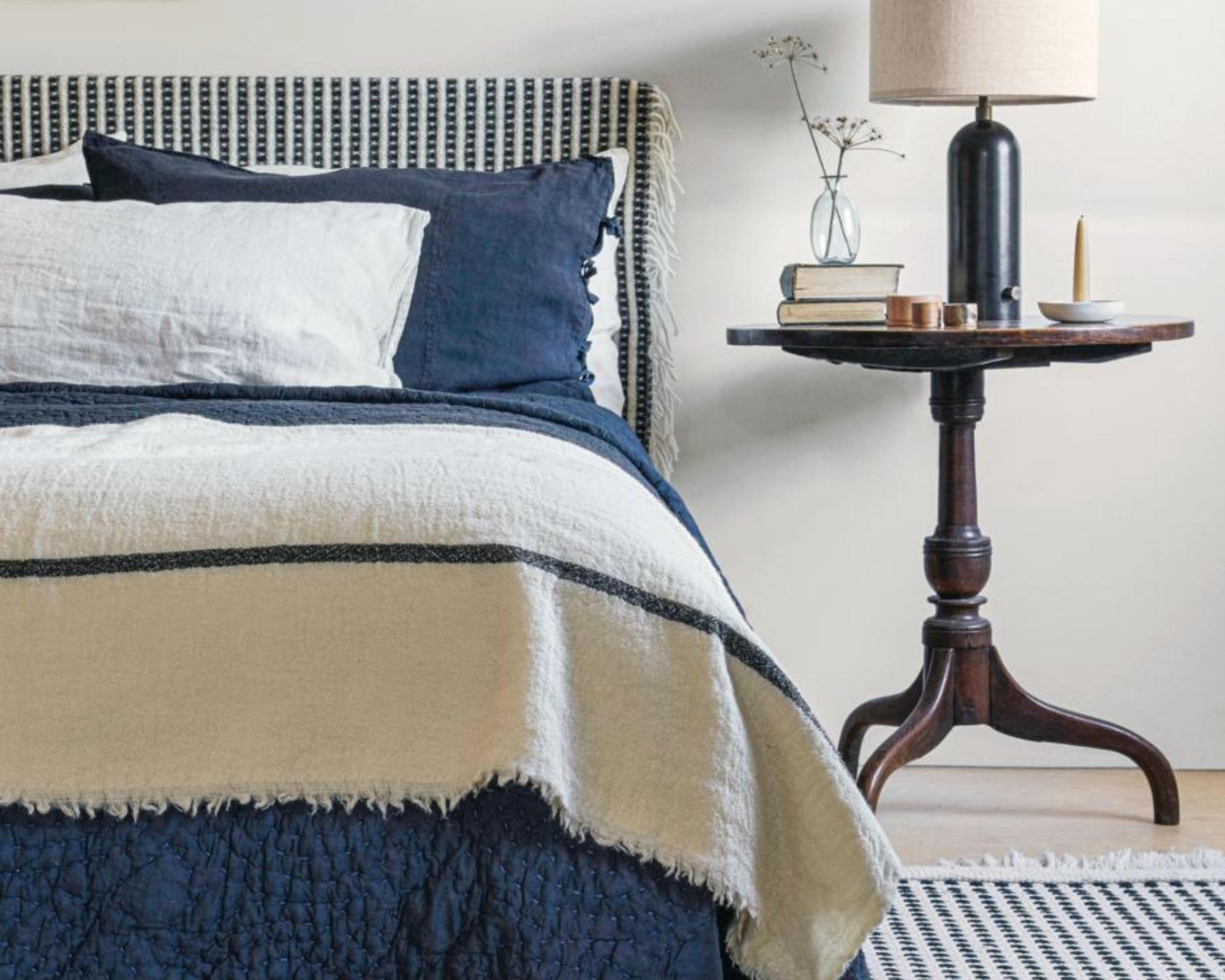
It may sound simple, but making sure your bedding fits properly is essential to a comfy bed. Many brands may label their bedding as a certain size, either being, twin, queen, king, Cali-king, but it's important to check the measurements. Just as clothes sizing can sometimes be off, bed sheet sizes may differ depending on the retailer, and there are additional sizes to the spectrum that you may get confused with, like Twin XL and full sizes. The general bed sheet sizes are as follows:
Twin: 38 x 75 inches
Twin XL: 38 x 80 inches
Full: 53 x 75 inches
Queen: 60 x 80 inches
King: 76 x 80 inches
Californian King: 72 x 84 inches
Another key measurement to consider is depth of your fitted sheet. Mattresses come in different depths, and your fitted sheet should fit snugly underneath the mattress. If you have a sheet that is too short, you'll struggle to keep all four corners down; too long and you'll experience sagging and excess material. Not only will this be uncomfortable but it will also look unpleasant.
7. Improper care
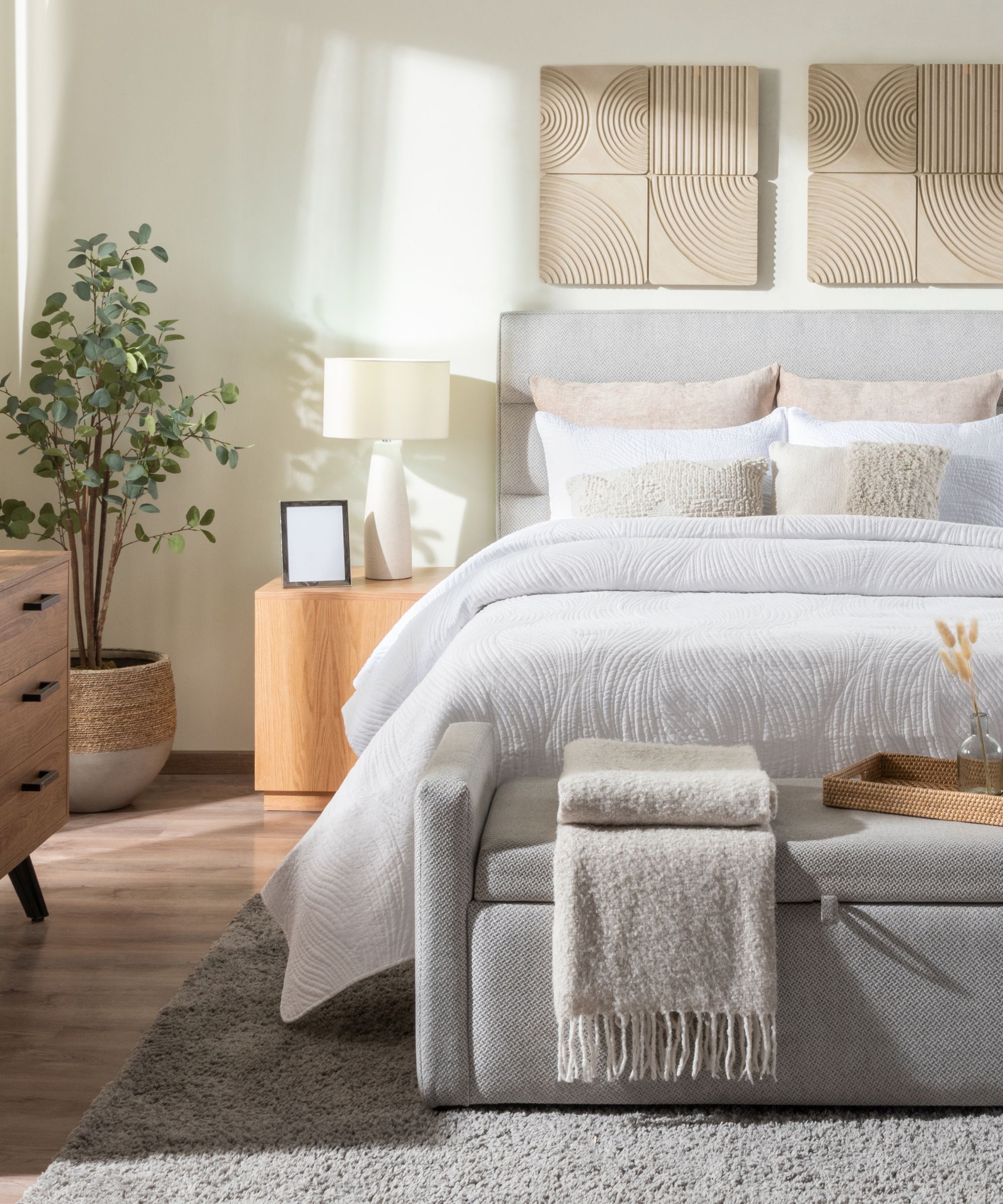
The mistakes don't stop once you have settled on a set and brought it home. How you store and wash bed sheets can make all the difference in their longevity and their comfort.
Chris Ailey says, 'Bedding requires a proper care and maintenance routine to keep its quality and longevity. Overwashing, for example, can degrade the fabric and shorten its lifespan, especially for more delicate materials such as silk.
'How often you wash your bedding should balance hygiene and preservation, so washing weekly or bi-weekly is typically a good rule of thumb.
'Improper storage of your bedding is another common issue we face, as bedding stored in damp or poorly ventilated spaces can develop odors or even mold. One thing people who always store bed linen properly always do is store it in breathable bags or dry containers, and you can even add lavender sachets or silica packs to help keep them fresh and in top condition when they’re not in use.'
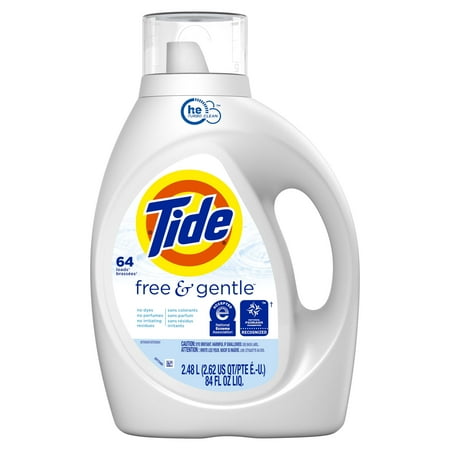
This detergent is free from dyes and fragrances that could irritate your skin, and is formulated for use in lower temperatures, helping you wash cooler for longer lasting sheets.

Under-bed storage is perfect for keeping spare bedding sets out of the way yet easy to access. These elevated storage bags on wheels allow your bedding to breathe in storage to stave off musty odors.

These folding, stackable storage bins are perfect for storing bedding sets neatly folded up on shelving, helping you see what bedding you have without it falling all over the place and making a mess.
FAQs
Should you size up when buying bed sheets?
Generally, the bed sheet size specified should match up to your mattress size. If you have a queen bed, for example, you should opt for queen-size bed sheets. However, if you have a deep mattress and the sheets you want aren't available in a deep-depth size, sizing up will allow for extra depth and help them stay on.
This is okay for a flat sheet as you can fold the corners and tuck in for a flat surface, but bear in mind, for a fitted sheet to stay on, it's important to get the correct sizing.
Avoiding these seven bed sheet mistakes means you won't have to compromise on a good night's sleep for factors that are very much in your control. Second to choosing the right bedding, you should know how to wash your bed sheets properly, as there's no point in buying the best set to only ruin them in the wash.
The sleep slip-ups don't stop with your sheets. There are several bed-making mistakes that could affect your sleep too.
Sign up to the Homes & Gardens newsletter
Design expertise in your inbox – from inspiring decorating ideas and beautiful celebrity homes to practical gardening advice and shopping round-ups.

Chiana has been at Homes & Gardens for two years and is our resident 'queen' of non-toxic living. She spends most of her time producing content for the Solved section of the website, helping readers get the most out of their homes through clever decluttering, cleaning, and tidying tips. She was named one of Fixr's top home improvement journalists in 2024.
- Louise OliphantEcommerce Editor
You must confirm your public display name before commenting
Please logout and then login again, you will then be prompted to enter your display name.
-
 Midimalist kitchens are the trending way to create a characterful yet clutter-free space – and these 8 spaces prove how chic this best of both worlds style can be
Midimalist kitchens are the trending way to create a characterful yet clutter-free space – and these 8 spaces prove how chic this best of both worlds style can beIt's the go-to kitchen style for a balance of busy and simplistic design
By Molly Malsom
-
 I tried the baking soda trick to quickly and naturally clean my outdoor rug – it’s now set for Easter outdoor hosting
I tried the baking soda trick to quickly and naturally clean my outdoor rug – it’s now set for Easter outdoor hostingBaking soda is perfect for lifting dirt and debris
By Eve Smallman
-
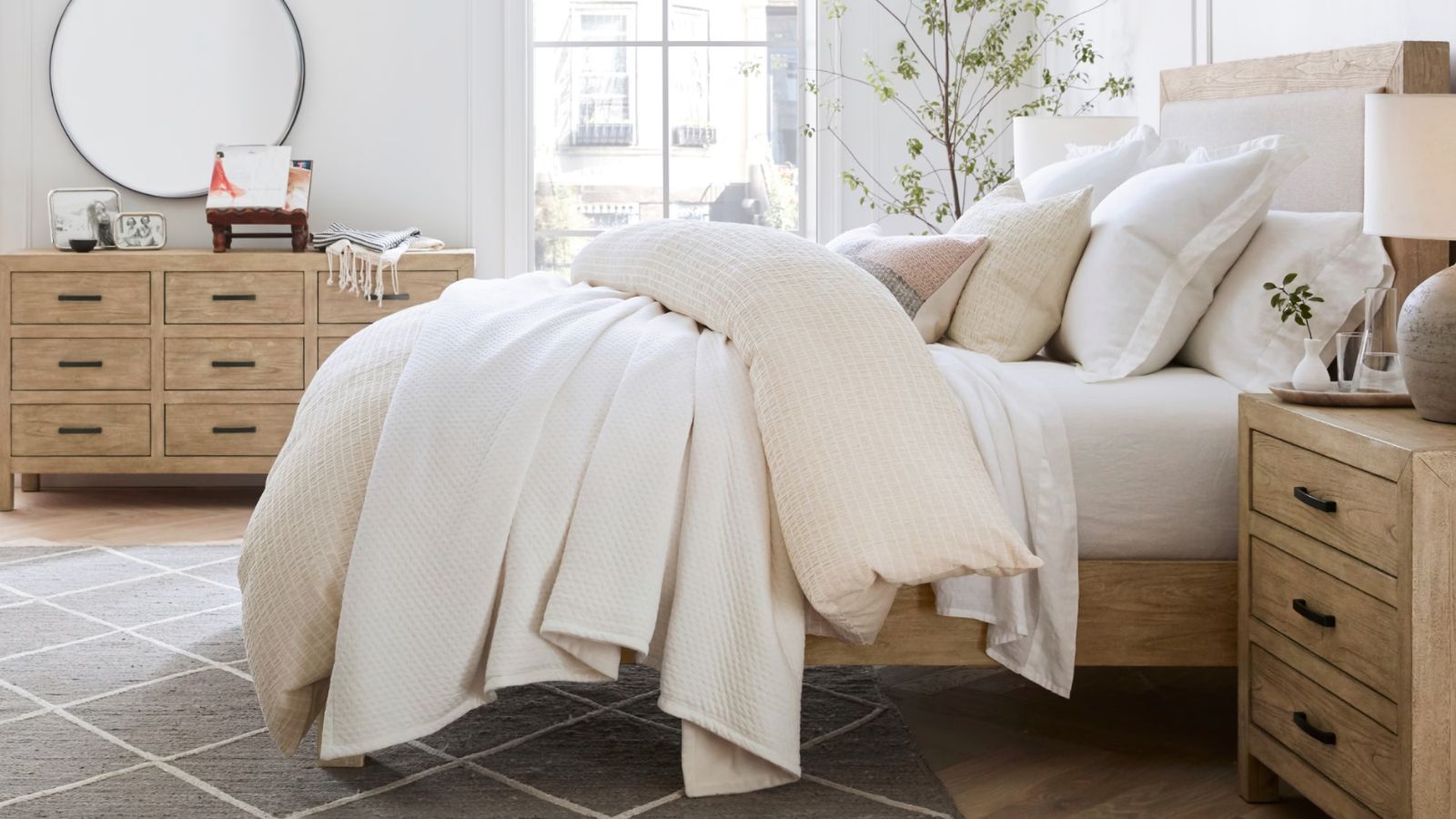 Sleep scientists warn that your bedroom might be making you feel groggy – learn to optimize your space for a more refreshing wake-up
Sleep scientists warn that your bedroom might be making you feel groggy – learn to optimize your space for a more refreshing wake-upMake yourself a morning person with these simple upgrades
By Chiana Dickson
-
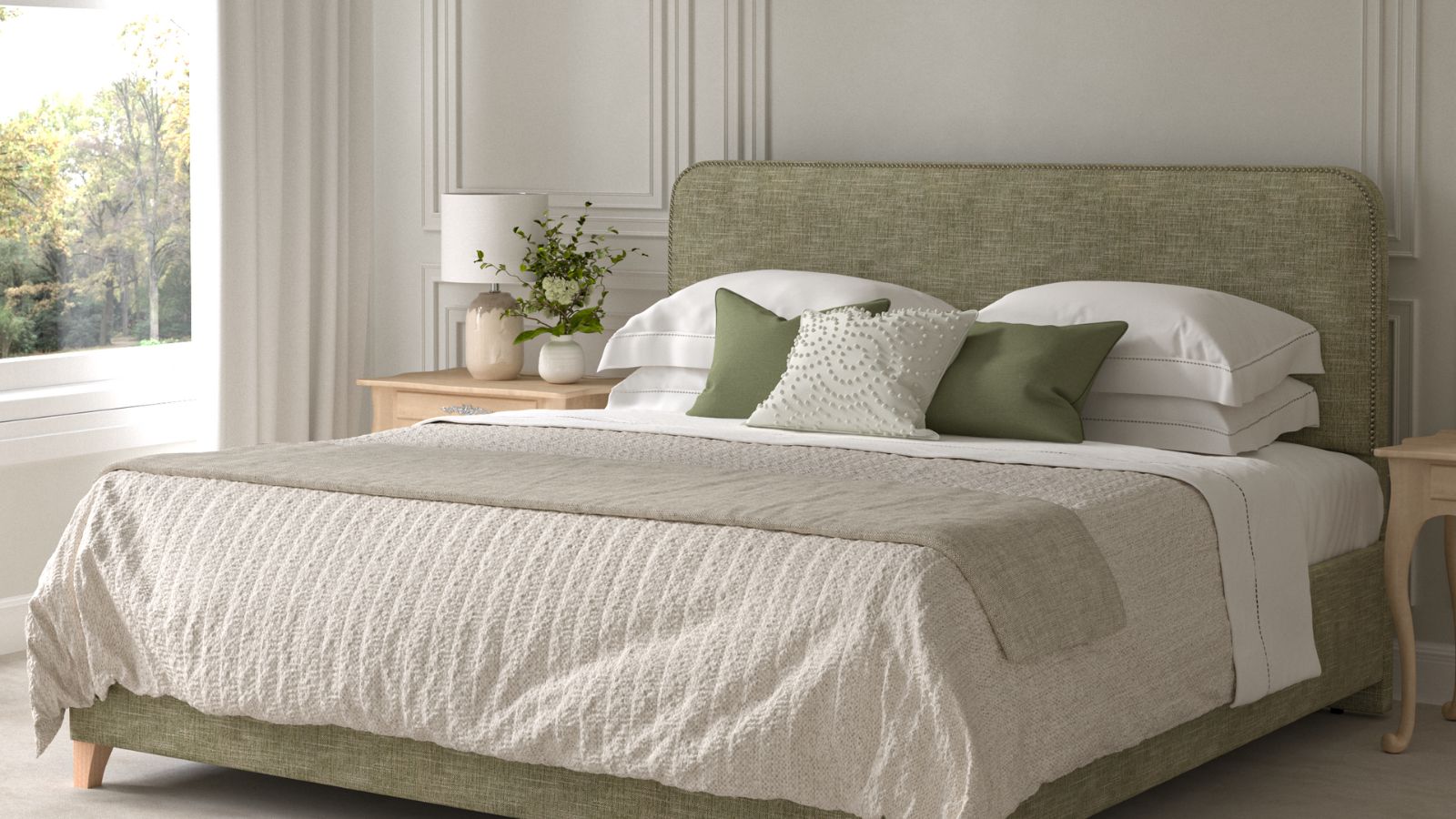 5 warning signs it's time to replace your pillows now
5 warning signs it's time to replace your pillows nowSleep experts share a number of signs that it's time for someone to consider replacing their pillows
By Ciéra Cree
-
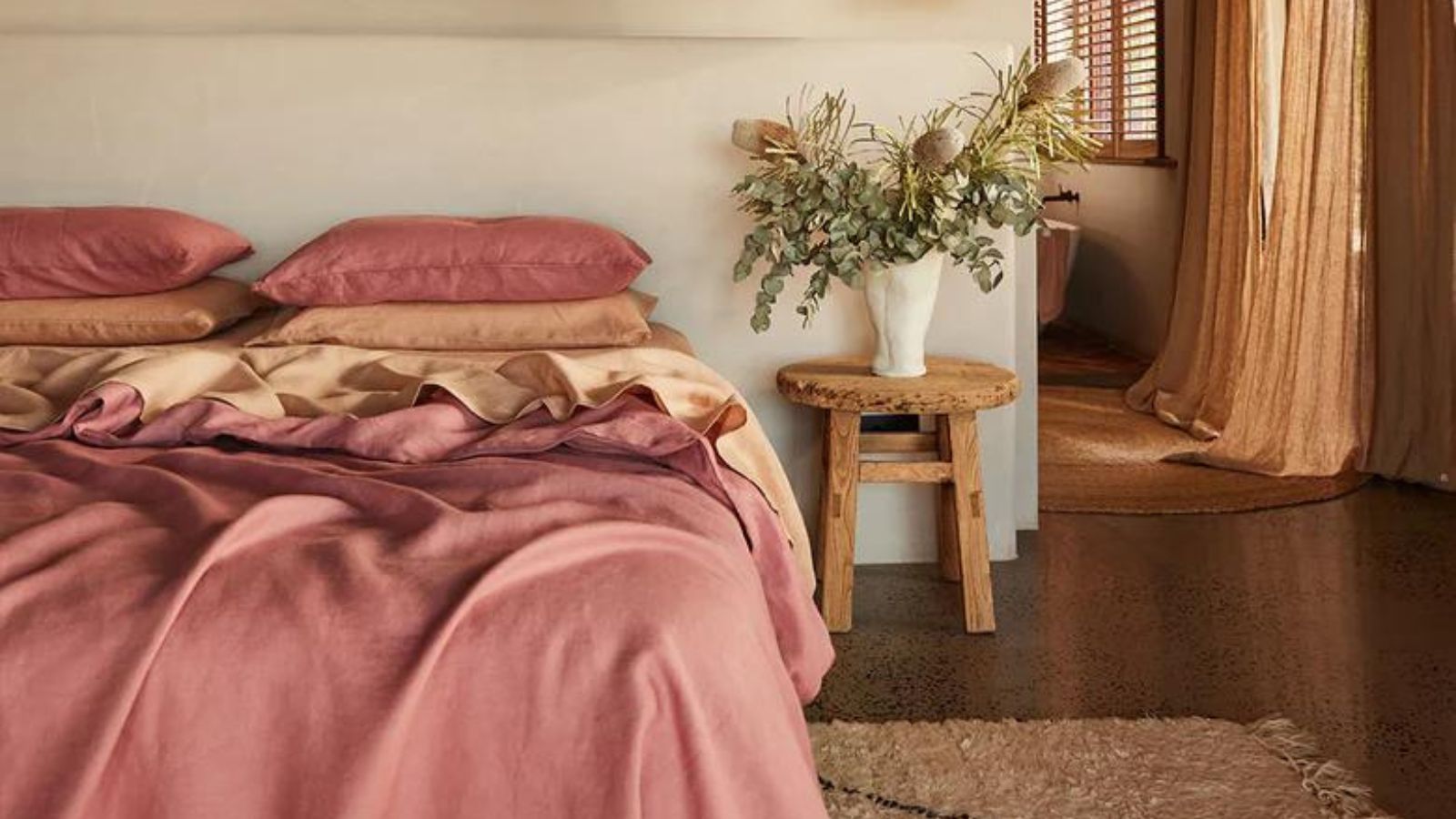 Why aren't my sheets staying on the bed? From size to technique, 5 common causes and how to easily fix each one
Why aren't my sheets staying on the bed? From size to technique, 5 common causes and how to easily fix each oneSleep experts and bedding designers explain why your sheets keep slipping off your bed − and how to tie them down
By Chiana Dickson
-
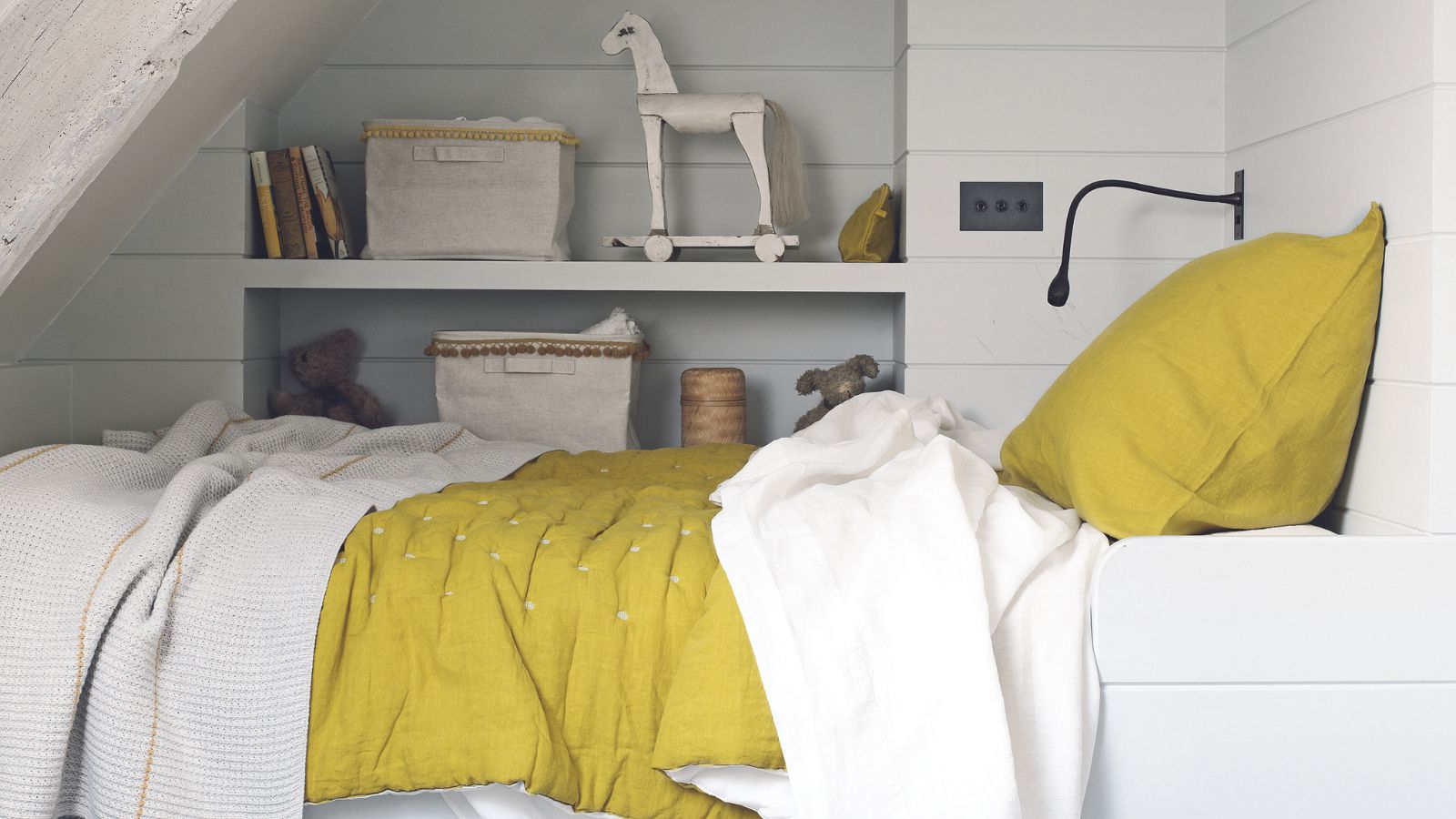 How to keep fitted sheets on a bed – and stop them slipping in the future
How to keep fitted sheets on a bed – and stop them slipping in the futureBedding experts share their tips and tricks for eliminating this annoyance
By Sarah Warwick
-
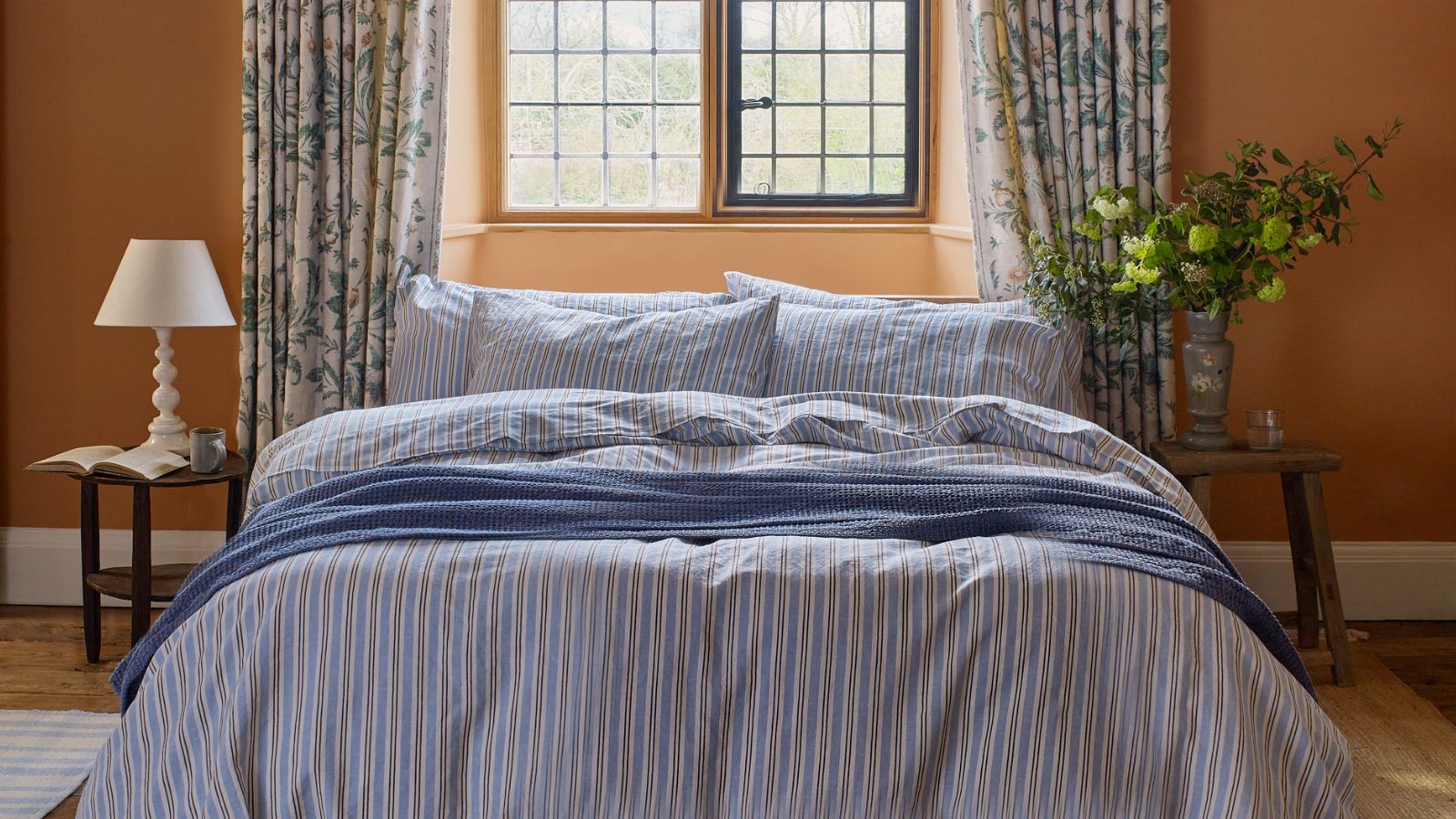 Do queen sheets fit a full bed? Bedding experts reveal how to get an optimal fit for a comfortable sleep
Do queen sheets fit a full bed? Bedding experts reveal how to get an optimal fit for a comfortable sleepAvoid bed sheet blunders with this advice from the pros
By Ottilie Blackhall
-
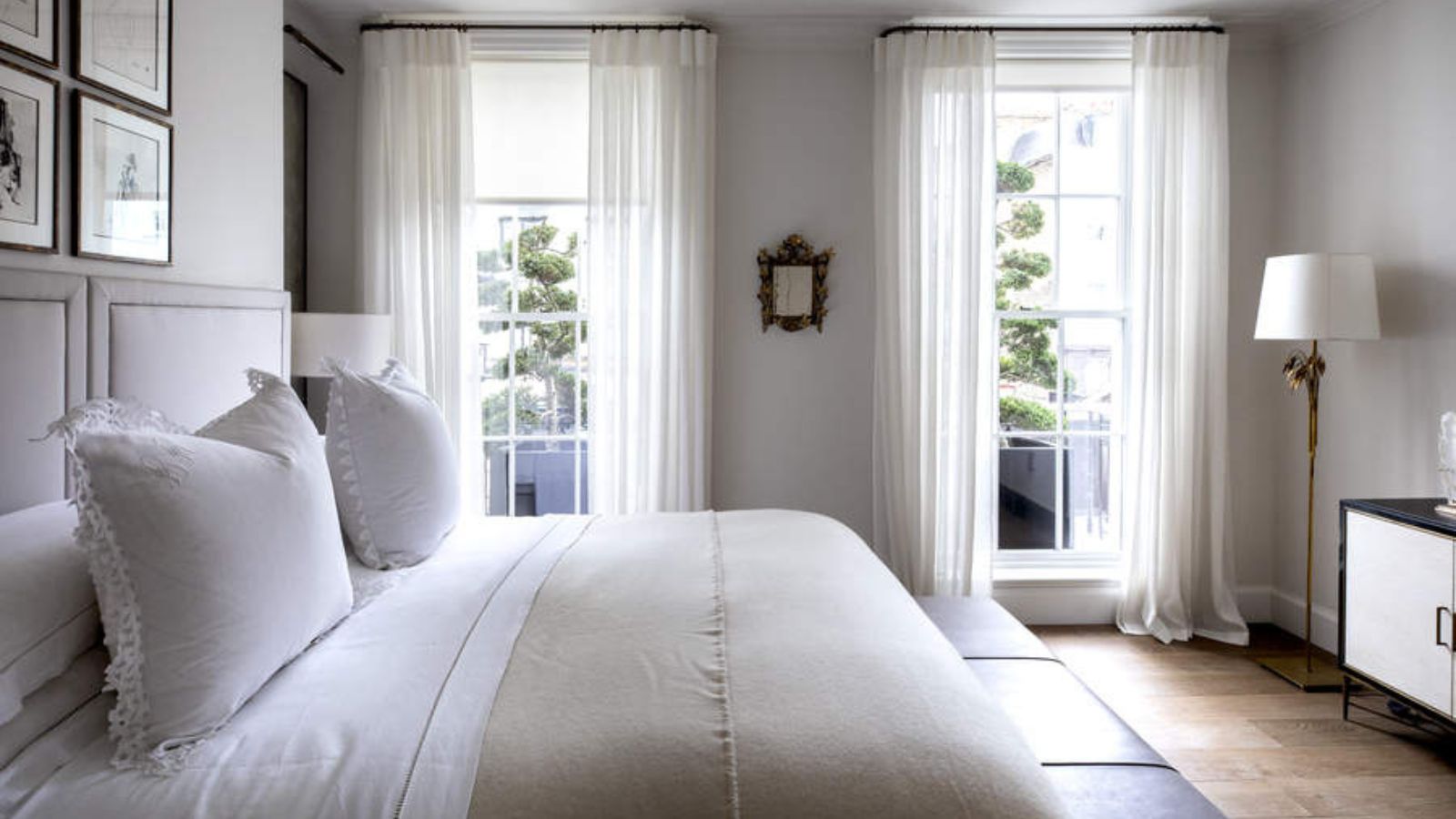 Why are my sheets pilling? Experts reveal how to fix it and the 'miracle material' least likely to pill
Why are my sheets pilling? Experts reveal how to fix it and the 'miracle material' least likely to pillWash well, avoid friction and invest in high-quality sheets, our pros say
By Emilia Hitching
-
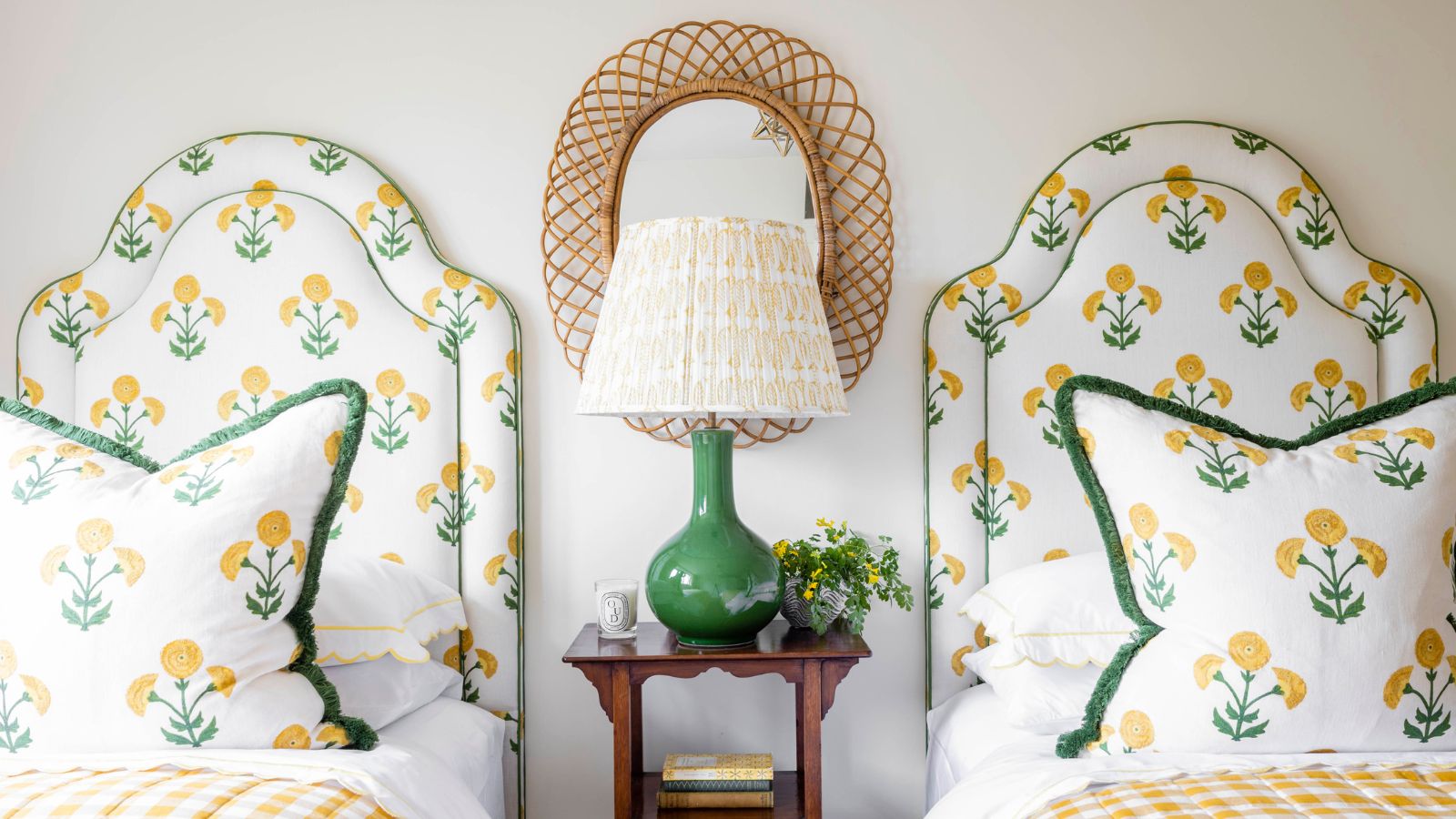 Do I need to flip my mattress topper? Expert-approved tips for the most comfortable sleep
Do I need to flip my mattress topper? Expert-approved tips for the most comfortable sleepPros warn against flipping, and share what to try instead
By Louise Oliphant
-
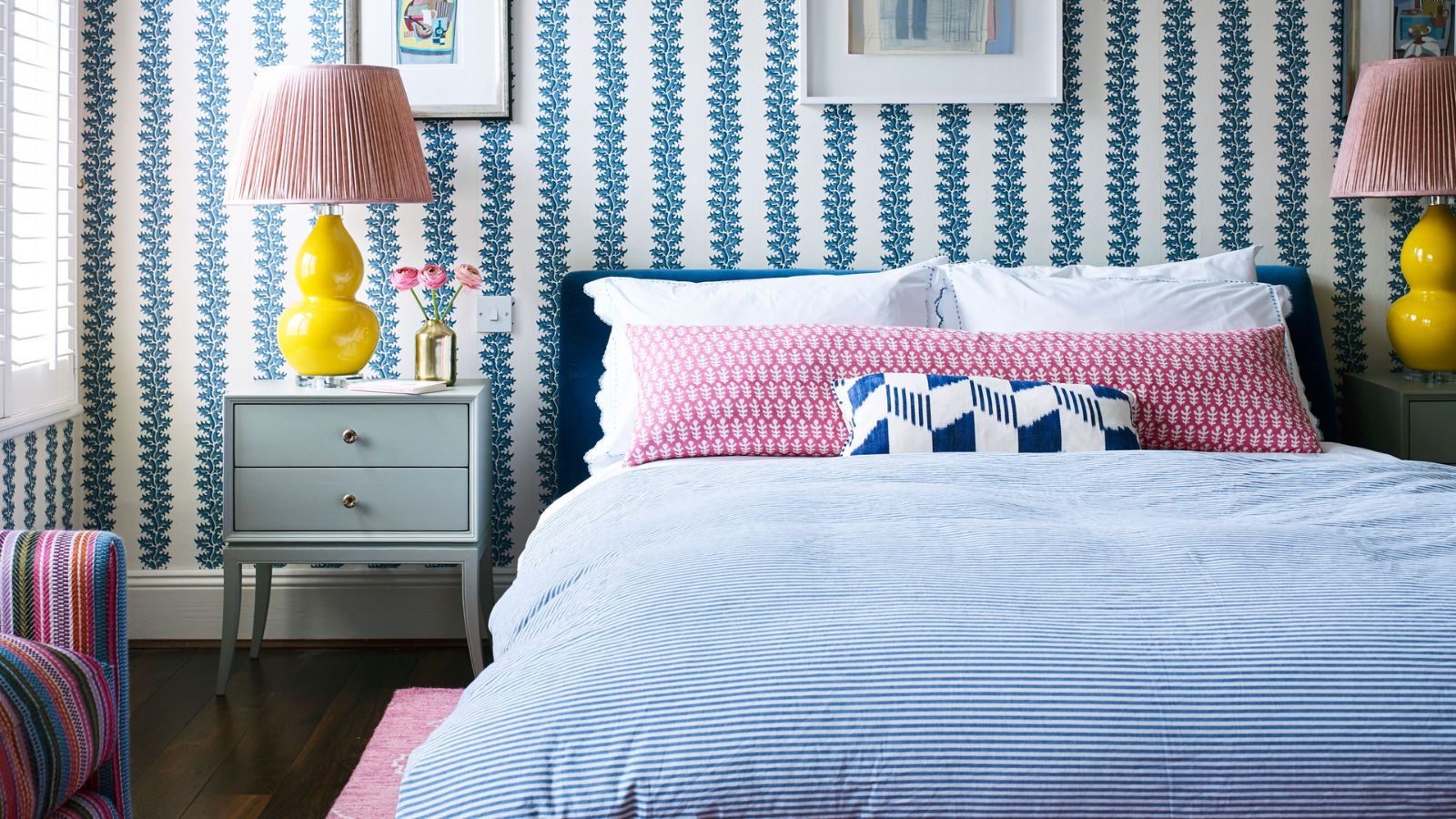 This bed sheet holder is my secret to better sleep – it cured my restless nights and costs less than $10
This bed sheet holder is my secret to better sleep – it cured my restless nights and costs less than $10Say goodbye to wrinkled and ill-fitting sheets
By Chiana Dickson